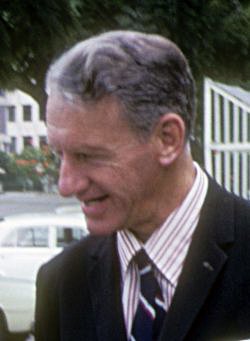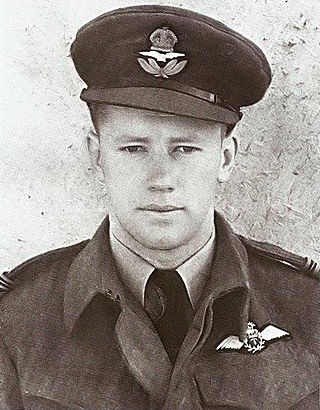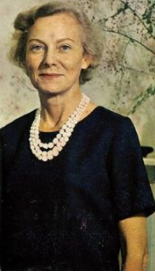Related Research Articles

Ian Douglas Smith was a Rhodesian politician, farmer, and fighter pilot who served as Prime Minister of Rhodesia from 1964 to 1979. He was the country's first leader to be born and raised in Rhodesia, and led the predominantly white government that unilaterally declared independence from the United Kingdom in November 1965 in opposition to the UK's demands for the implementation of majority rule as a condition for independence. His 15 years in power were defined by the country's international isolation and involvement in the Rhodesian Bush War, which pitted the Rhodesian Security Forces against the Soviet- and Chinese-funded military wings of the Zimbabwe African National Union (ZANU) and Zimbabwe African People's Union (ZAPU).

Sir Reginald Stephen Garfield Todd was a liberal Prime Minister of Southern Rhodesia from 1953 to 1958 and later became an opponent of white minority rule in Rhodesia.

Clifford Walter Dupont was a British-born Rhodesian politician who served in the internationally unrecognised positions of officer administrating the government and president. Born in London and qualifying as a solicitor, Dupont served during the Second World War as an officer of the British Royal Artillery in North Africa before first visiting Southern Rhodesia in 1947. He returned a year later, started a ranch and emigrated full-time during the early 1950s, by which time the country had become a territory of the Federation of Rhodesia and Nyasaland.

Winston Joseph Field was a Rhodesian politician who served as the seventh Prime Minister of Southern Rhodesia. Field was a former Dominion Party MP who founded the Rhodesian Front political party with Ian Smith.
Dame Gillian Constance Weir is a New Zealand-British organist.
Gerald Bryan Sheil O'Cleary Clarke was a Rhodesian politician. He was born in Gwelo as the son of Irish-Rhodesian parents, Francis Joseph Sheil O'Cleary Clarke and Margaret Shiel. His father arrived in Rhodesia in 1896 following a part played in the Jameson Raid, and became a Justice of the Peace in a long career of public service in Rhodesia that stretched for 38 years.

Eileen Alannah Joyce CMG was an Australian pianist whose career spanned more than 30 years. She lived in England in her adult years.

A double referendum was held in Rhodesia on 20 June 1969, in which voters were asked whether they were in favour of or against a) the adoption of a republican form of government, and b) the proposals for a new Constitution, as set out in a white paper and published in a Gazette Extraordinary on 21 May 1969. Both proposals were approved. The country was subsequently declared a republic on 2 March 1970.

Mark Henry Heathcote Partridge was a Rhodesian politician who served as the minister of Lands and Natural Resources and Defence.

Sir Herbert James Stanley, was a leading British colonial administrator, who served at different times as Governor of Northern Rhodesia, Ceylon and Southern Rhodesia.
Bernard Walton was a British classical clarinettist.

The Southern Rhodesia Communist Party was an illegal, underground communist party established in Southern Rhodesia which was formed in large part due to the minority settler rule, which had an immensely repressive structure. It emerged in 1941 from a split in the Rhodesia Labour Party. The party consisted of a small, and predominantly white, membership. During the parties existence it had links to other communist parties such as the Communist Party of South Africa and the Communist Party of Great Britain. The party disappeared in the late 1940s, with the exact date of its dissolution not being known. Nobel Laureate Doris Lessing author of various works including “The Grass is Singing,” is the most well known member of the Southern Rhodesian Communist Party.

Geoffrey Penwill Parsons AO OBE was an Australian pianist, most particularly notable as an accompanist to singers and instrumentalists. After the retirement of Gerald Moore, he was generally considered the world's finest and most sympathetic accompanist of lieder singers, "elevating the role of the accompanist to new heights with his musicality, authority and quiet strength of playing".
Air Marshal Archibald Oliver Garfield Wilson was a Rhodesian fighter pilot who served in the Royal Air Force during World War II. He went on to become a senior commander and then Air Marshal in the Rhodesian Air Force in the 1960s and early 1970s. After retirement, he served two terms in the Rhodesian House of Assembly, in the Zimbabwe-Rhodesian Parliament in 1979, and then in the Zimbabwe Parliament in 1981–1982. He held several cabinet portfolios prior to the Internal Settlement. He resigned in 1982 to emigrate, with his wife Lorna, to Australia's Gold Coast in 1982. He became a citizen of Australia in 1988.
Albert Alan Owen ARAM is a British composer and musician.

The future Rhodesian Prime Minister Ian Smith served in the Royal Air Force (RAF) during the Second World War, interrupting his studies at Rhodes University in South Africa to join up in 1941. Following a year's pilot instruction in Southern Rhodesia under the Empire Air Training Scheme, he was posted to No. 237 (Rhodesia) Squadron, then stationed in the Middle East, in late 1942. Smith received six weeks' operational training in the Levant, then entered active service as a pilot officer in Iran and Iraq. No. 237 Squadron, which had operated in the Western Desert from 1941 to early 1942, returned to that front in March 1943. Smith flew in the Western Desert until October that year, when a crash during a night takeoff resulted in serious injuries, including facial disfigurements and a broken jaw. Following reconstructive plastic surgery to his face, other operations and five months' convalescence, Smith rejoined No. 237 Squadron in Corsica in May 1944. While there, he attained his highest rank, flight lieutenant.
William John Harper was a politician, general contractor and Royal Air Force fighter pilot who served as a Cabinet minister in Rhodesia from 1962 to 1968, and signed that country's Unilateral Declaration of Independence (UDI) from Britain in 1965. Born into a prominent Anglo-Indian merchant family in Calcutta, Harper was educated in India and England and joined the RAF in 1937. He served as an officer throughout the Second World War and saw action as one of "The Few" in the Battle of Britain, during which he was wounded in action. Appalled by Britain's granting of independence to India in 1947, he emigrated to Rhodesia on retiring from the Air Force two years later.

Queen of Rhodesia was the title asserted for Elizabeth II as Rhodesia's constitutional head of state following the country's Unilateral Declaration of Independence from the United Kingdom. However, the position only existed under the Rhodesian constitution of 1965 and remained unrecognised elsewhere in the world. The British government, along with the United Nations and almost all governments, regarded the declaration of independence as an illegal act and nowhere else was the existence of the British monarch having separate status in Rhodesia accepted. With Rhodesia becoming a republic in 1970, the status or existence of the office ceased to be contestable.

Janet Duvenage Smith, was the wife of Ian Smith, Prime Minister of Rhodesia from 1964 to 1979. Born in Cape Town, South Africa, she studied history at the University of Cape Town and became a teacher. In 1942, she married Piet Duvenage, a rugby player, and had two children. He died in an accident on the rugby field in 1947. The next year, a short visit with family in Southern Rhodesia became permanent when she accepted a teaching job in Selukwe. There, she met her future husband, Ian Smith, who had recently come home from the Second World War. In 1948, the couple got married and bought a farm, and Ian was elected to the Southern Rhodesian Legislative Assembly.
Mary Cuningham Chater, MBE was an English composer, author, music advisor to the Girl Guides Association and editor of several Girl Guide songbooks. She was a recipient of the Silver Fish Award, the highest adult honour in Girl Guiding.
References
- 1 2 Curror, Ian (29 May 1991). "Obituary: Eileen Reynolds". The Independent .
- ↑ "Miscellaneous (Front Matter)". The Musical Times. 96 (1350): 441. Aug 1955. Retrieved 1 November 2021.
- ↑ "Front Matter". The Musical Times. 107 (1482): 719. Aug 1966. Retrieved 1 November 2021.
- ↑ "Honours and Fellowships - FRCM Recipients" (PDF). Royal College of Music London. Retrieved 1 November 2021.